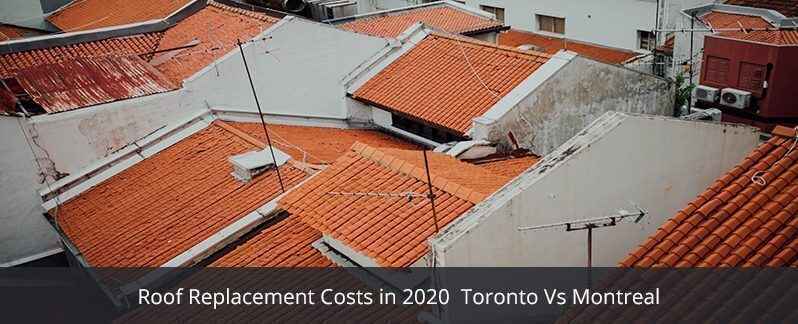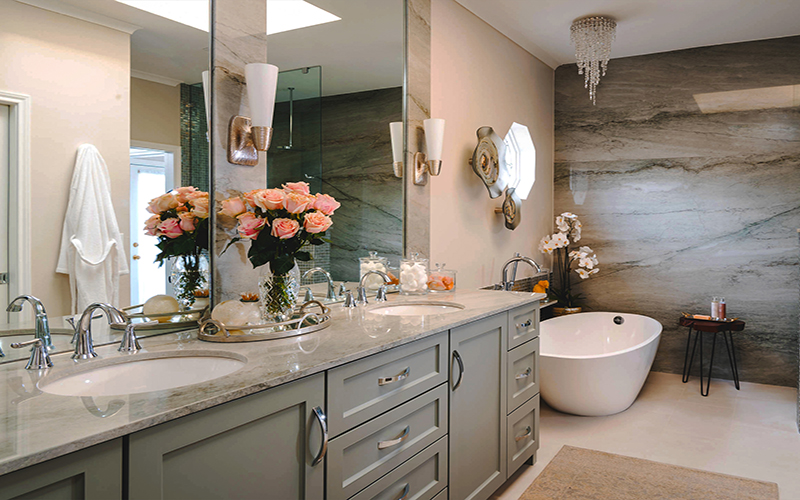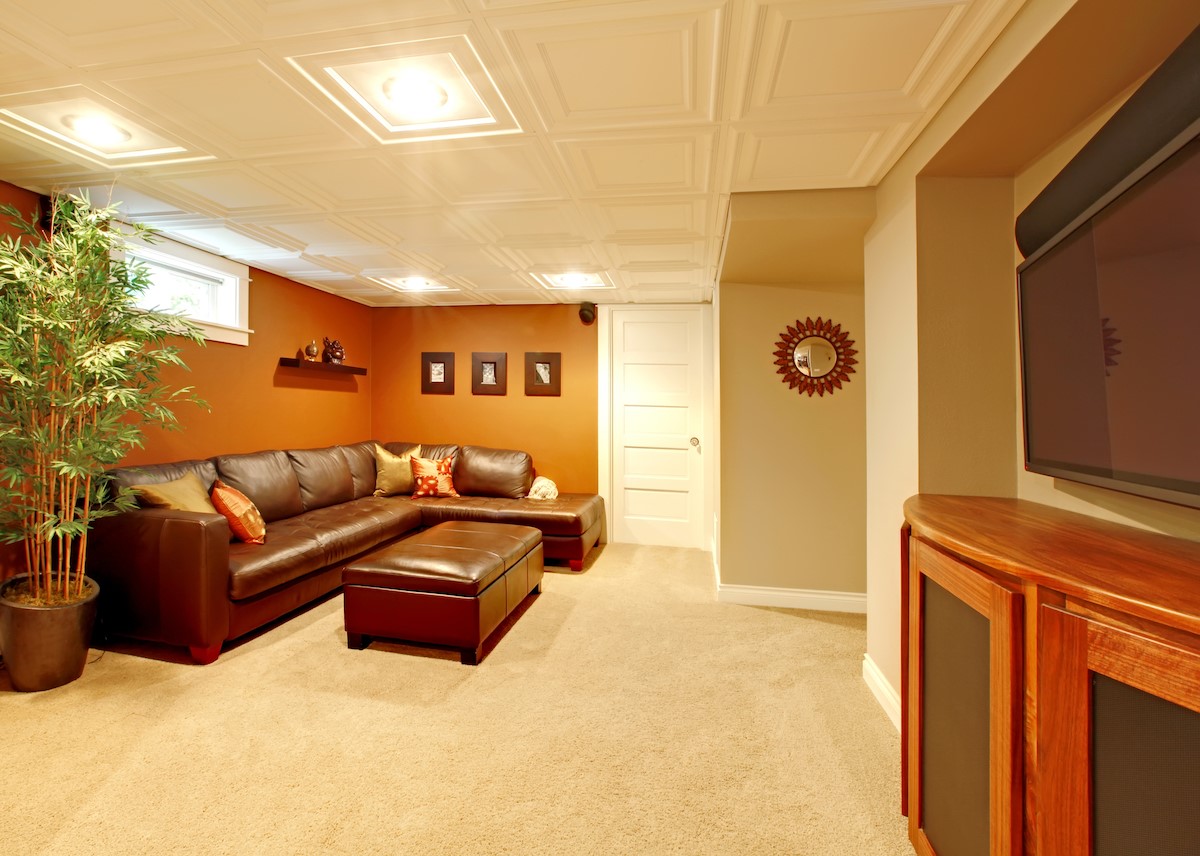2024 Roof Replacement Costs Toronto Vs. Montreal
You may not consider your roof that much, but as soon as it requires repair, it will become impossible to ignore and you strive for roof replacement. Even one leak can cause significant damage to the entire home. By carefully maintaining your roof and replacing it at the end of its lifetime, you will assure it does its work of protecting all that lies underneath it. Plus, roof placement in Toronto will boost your property’s value, since potential buyers will not worry knowing that they are not going to need to take this project on themselves.
For outstanding residential and
commercial renovation services in Toronto, book an appointment with ASASA Construction.
Asphalt Shingles:
More than 75% of all single-family homes in Canada are
roofed with asphalt shingles, though that number is slowly decreasing thanks to
the more energy-efficient and durable
metal roofing. Asphalt (composition) shingles lead the market
because they are economical. They offer a variety of attractive options and do
a good job protecting homes from natural components.
There are Two
Kinds:
- Fiberglass shingles initiate
with a fiberglass mesh mat that is enclosed in asphalt and topped with granules
that give color and reflect minute sunlight. Shingles produced with fiberglass
are lightweight and resist tearing.
- Organic asphalt shingles begin
with the paper, often recycled, that is drenched in asphalt and covered with
granules. The shingles are harder and heavier than fiberglass to work with, but
they usually offer superior stability in high winds. You can see them on many
roofs, but organic shingles have been mostly out of stock or discontinued over
the last decade. Why? Producers have stopped making organic shingles due to
their impulse to dry out, turn less-waterproof, and more prone to excessive
moisture absorption.
Advantages:
- Fiberglass shingles offer excellent fire protection.
- Look good on almost any style house.
- Shingles are often the most economical
roofing option, especially in good ranges
- The best asphalt shingles are a thirty-year roof solution
installed on homes located in median climates
- The cheapest 3-tab shingles are an economical way to dress a
home before putting on the market
- Extensive styles and colors along with economical three-tab
and architectural shingles that resemble slates and shakes.
- DIY asphalt shingle installation is easy for those with
great experience, equipment, and skills.
- Shingles need no support beyond standard roof sheathing.
- 3-tab shingles rated for 65-75 MPH wind power, while
standard architectural shingles rated for 115 MPH winds; high-wind shingles
rated for 135 MPH.
- Use High-impact shingles generally the ones produced
by GAF for heavily-wooded areas
where large hail is possible.
- Some shingle repairs
are easy and cost-effective
Disadvantages:
- Because composition shingles require frequent replacement.
The lifetime cost of shingles is expensive than tile, metal, or slate.
- Cheaper asphalt shingles have a lifespan as low as 10-15
years in hot, sunny weather
- quick temperature changes can lead to asphalt shingles to
crack
- A poorly ventilated attic will trap heat and lessen asphalt
shingle lifespan by cupping or cracking them.
- Recycled materials at the asphalt shingle industry are used
for paving, few recycling facilities use asphalt shingles, and they are the
least eco-friendly options.
- Rip all layers after the second layer of shingles needs
replacement, off the roof, creating extra expense and a lot of landfill waste.
- Algae or mold can be an issue on shingles in shady areas.
Treat it with anti-stain/anti-algae remedies.
- Organic/felt shingles are heavy; taking them to the roof in batches can be a challenge.
Metal Roofs:
Although metal roofs are expensive than asphalt and they are less popular, they have notable benefits that you want to consider when updating your roof.
As a general rule, the more you spend, the longer your roof
will last. Depending on your budget and the amount of time you are willing to
stay in your home will naturally sway you towards favoring budget or
durability. If you have any specific images in your mind, this will inspire you
more towards the style is a significant concern. Ultimately, it is your home
and up to you which roof to choose.
Longevity
If you are looking for a roof that will last, then look no
further. A metal roof will
last at least four times longer than an asphalt roof, meaning that maybe you
never need to redo your roof again
when opting for this material.
Advantages:
There are many reasons to acknowledge choosing a metal roof for your house.
Metal roofs can
better manage the components, saving you up to 40% off the energy bills.
Furthermore, they possess greener materials than asphalt, potentially making
you eligible for tax credits.
Low Maintenance.
These shingles can withstand nearly anything the elements
throw at it and are less susceptible to peeling.
Long-lasting.
Metal lasts four times longer than asphalt shingles— up to 60
years!
Easy to Install.
In some scenarios, metal shingles can be installed over your
existing asphalt roof.
Lighter.
Weighs almost half as much as asphalt, metal will cause less
stress on your rafters or trusses.
Resale Value.
With longer life, less maintenance, and energy efficiency, a metal roof is something potential buyers are willing to pay a premium.
Disadvantages:
Despite having ample benefits, there are some important
reasons why you should use another roofing material.
Costly.
Although they will save you a bunch of money in the long run
because they are durable, metal roofs usually have a higher cost than asphalt
shingles.
Noise cushioning
Without proper noise cushioning, rainfall will sound like
there is a drummer on the roof.
Hard time in contracting and expanding:
Without an appropriate fastener, metal would not be able to
expand and contract as the weather changes properly.
Hard to match.
If a small portion of your roof requires repair, it is
difficult to match the exact style of the surrounding area as it may have
changed over time from the weather.
Hard to a breakthrough in case of emergency
If there is a fire, firefighters will have a hard time cutting through the roof to combat flames inside your house.
Different Kinds of Metal Roofs Options for Roof Replacement
There are several different types of metal that you can opt
for your roof, each of which will bring additional perks to your home.
Aluminum:
Aluminum is easily malleable, making it great for molding
into various shapes for an exclusive look. They are beneficial for the
environment, as they are easy to recycle and also reflect light, which will
mean that your air conditioner will not need to work hard.
Copper:
Copper is one of the most durable metals that exist and is
less prone to erosion over time.
Stainless Steel:
Stainless steel is one of the most generally used metals, as
it is highly immune to erosion and rusting.
Tin:
Tin is one of the cheapest metals but is a great option due
to its corrosion resistance and ability to be molded easily.
Zinc:
Zinc is an exclusive metal due to its self-healing properties, forming a coating as it weathers and reseals itself when scratches form.
Fiberglass Shingles:
Fiberglass shingles are the most commonly used
kind of asphalt shingles for roof installation. It
poises a woven fiberglass mat covered with asphalt and mixed with ceramic
granules (to prevent damage from ultraviolet rays). Thin and lightweight, they
are simple to install and less likely to require extra work to your trusses and
rafters to support more weight as heavy shingles would have. They will also
come with an extended warranty and a higher fire rating.
Slate:
Slate shingles, generally found in historic or older
homes. You can get them in abundant colors, and they are durable. Like clay
tiles and concrete, they are also easy to maintain and are good against rot and
fire. However, they are on the costlier and heavier end of the spectrum and
will need expert installation, in addition to further framing to support it.
Wood shingles and shakes, usually produced from redwood, cedar, and southern pine with a lifetime of around 25 to 30 years. They will cost you around $100 a square. However, you will have to check local regulations before purchasing these, as they might have a ban in your area, given that they are highly flammable. You may have to seek out fire-resistant products, even so specifically. Besides, your roof must have a minimum of 4:12 slope to evade becoming waterlogged, and they can still rot and split under persistently damp conditions. They must be treated with preservatives and fungicides every two to five years.
Rubber Composite or Synthetic Slates
Rubber composite slates, also classified as synthetic
slates, are produced by rubber and plastic. Their texture and color may be
similar to slate, but they are much more lightweight and flexible. That said,
they are still quite strong. They also do not need maintenance beyond
inspecting for damaged shingles, and some brands might be fire-resistant.
However, it may be hard to find these, given that there are
not many vendors. You will also want to be very careful in choosing a reputable
brand with at least ten years or more backing them. These products might absorb
water, and the quality can vary, which means you have to do research to choose
a suitable brand with a great history. Look to spend somewhere about $250 to
$450 a square, with a warranty of almost 50 years.
Hot Mop Roofing
Hot mop roofing is not an attractive option
amongst the homeowners as it is not pleasing to the eye. You will mostly find this
style in commercial buildings. They require flat roofs with
excellent drainage system and easy access to completely apply and maintain. Hot
mopping is a cheaper method and can be fairly durable if done right. That said,
you will have to check your local regulations and roofing contractors to see if
this option is offered and allowed; it can be very dangerous to the roofers,
and during the application, it lets off smelly fumes that contribute to urban
smog.
What is the Cheapest Roofing Material Available for Roof
Replacement?
Asphalt shingles are considered the cheapest roofing material at $75 to $170/square. Standard styles of concrete and metal are also an economical choice.
Metal Roofs vs. Shingles
Metal roofs are $100 to $950/square and are not
generally cheaper than asphalt shingles, which are $65 to $165/square.
They will cost more to install, ranging from $75 to $550/square in
labor versus $55 to $180/square for asphalt. Metal will
last two to five times as long as asphalt and could be a great value this way.
There are high-end asphalt products that top the cost of
standard metal roofs, and there are also low-priced metal roofs that run close
to the price of asphalt. For the most part, metal will be more expensive than
asphalt.
Rubber Roof vs. Shingles – For Roof Replacement Which is Cheaper?
Asphalt shingles are generally cheaper than both concrete
and rubber roofing.
Asphalt is $75 to $170 per square and is easy to install,
versus concrete at $155 to $260 per square and clay at $350 to $650
per square. When you add labor, it’s usually more expensive to install tile
because of its process and weight.
Price Comparison for Roof Replacement Between Montreal vs. Toronto:
|
TYPICAL
BUNGALOW |
DOUBLE
STORY ROOF |
LUXURY
HOME (MULTIPLE SLOPES) |
||||
|
CITY |
MONTREAL |
TORONTO |
MONTREAL |
TORONTO |
MONTREAL |
TORONTO |
|
ASPHALT
SHINGLES |
$4.1K
– $5.6K |
$4.5K
– $6.1K |
$5.6K-$7.2K |
$5.6K-$7.9K |
$9.2K-$17.5K |
$10.3K-$19.5K |
|
METAL
ROOFING |
$15.4K-$25.7K |
$16.9K-$28.3K |
$17.5K-$27.8K |
$19.5K-$30.9K |
$30.9K-$56.6K |
$36K-$62.3K |
|
SLATE |
$22.6K-$35.6K |
$25.7K-$39.6K |
$24.7K-$38.1K |
$27.2K-$42.2K |
$40.1K-$59.7K |
$45.5K-$62K |
|
RUBBER
ROOGING |
$11.3K-$12.3K |
$11.3K-$13.9K |
$11.3K-$15.4K |
$12.3K-$16.9K |
$14.4K-$20.6K |
$15.9K-$22.6K |
For uncovering the myths regarding the curbless shower,
read Curbless Shower-7 Myths Regarding Curbless Shower by ASASA as an information booster.

![Basement Renovation Cost in Toronto [Year 2025]](https://asasaconstruction.com/uploads/post/1742002745basement-renovation-cost-in-toronto-2025.png)

